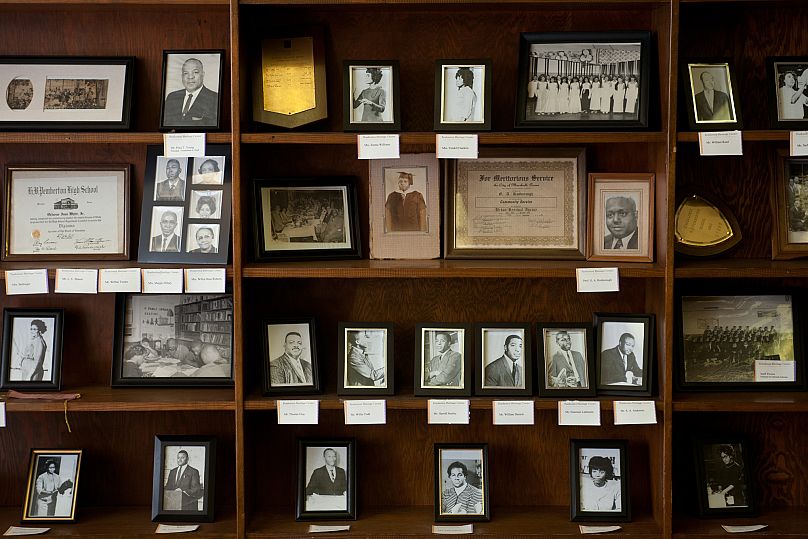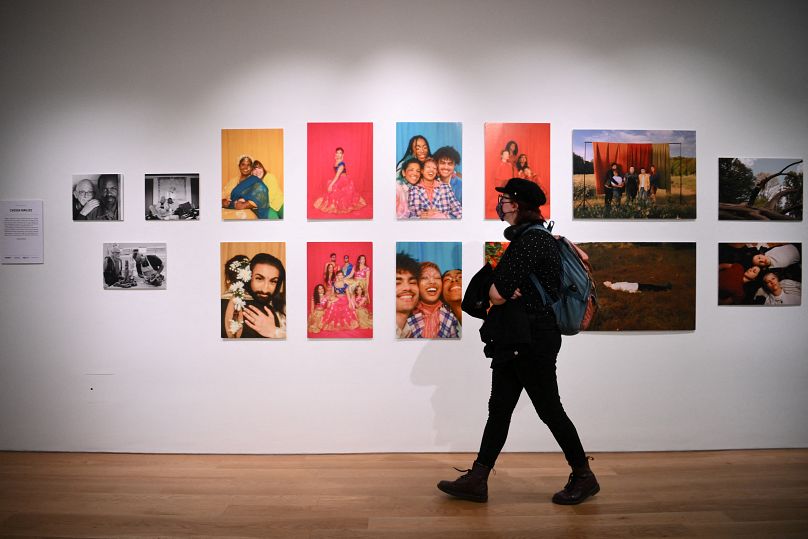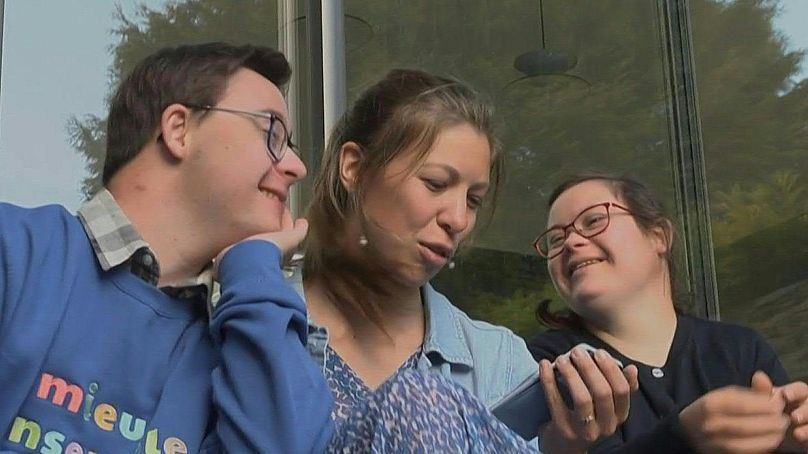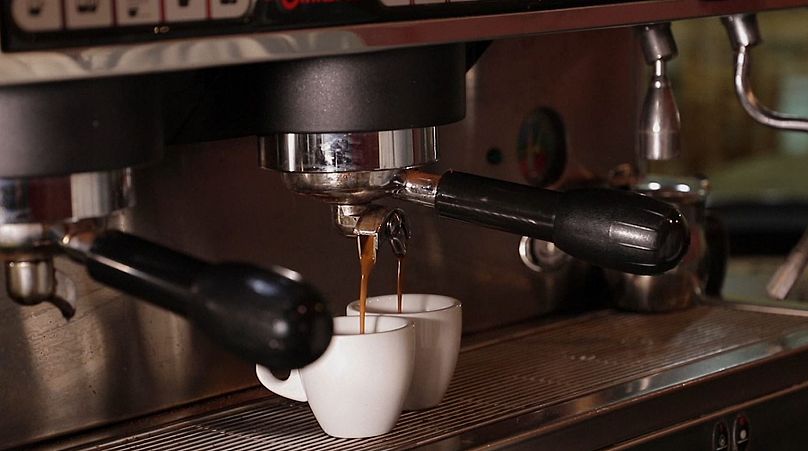What’s gone well in the world this week? The UK’s first queer museum, how coffee grows cucumbers and the beginner’s guide to landing a plane.
Headlines can be hard going, but some news is good news. Here is your weekly digest of what’s going well in the world.
1. An anonymous donor pays off the student loans of a hundred students in the United States
2. The UK’s first queer history museum opens its doors
3. How co-living is countering loneliness for young people with disabilities
4. An Albanian farmer using coffee waste to grow fruit and veg
5. And how a man with no flying experience managed to land a plane
Watch the video above for more on each story, or read on below.
1. An anonymous donor pays off student loans
Students at Wiley College in Marshall, East Texas, USA, were given the ultimate graduation gift when they found out a generous stranger had paid off their student loans.
The 100 students of the 2022 graduating class were told at their graduation ceremony on 7 May that they were leaving college debt-free.
Wiley College president Herman J. Felton Jr. told the students: “You do not owe the college a penny. If you have a balance, you had a balance. You no longer have a balance.”
According to the school’s estimates, the combined debts totalled $300,000 – the equivalent of €280,000 euros.
Wiley College is an HBCU – an official designation for Historically Black Colleges and Universities that were founded before the Civil Rights Act of 1964 with the intention of primarily serving the African-American community.
The liberal arts institution made history in 1935 when the college debate team competed on equal footing with whites for the first time in the American South. The team prevailed over the reigning national debate champion, the University of Southern California, sending a strong message to a heavily segregated country – a story that was told by the 2007 movie The Great Debaters, directed by and starring Denzel Washington.
2. UK’s first queer history museum opens its doors
Celebrating queer history and culture, and bringing it to everyone, Queer Britain, the UK's first national LGBTQ+ museum, opened its doors on 5 May in London.
Located in a part of the city with a "rich queer heritage" according to museum director and co-founder Joseph Galliano, a former editor of Gay Times magazine, the museum plans to play a key role in the preservation of queer culture and history.
Museum manager Stephanie Stevens told AFP: "[The museum is] a permanent place for us to celebrate who we are, the incredible contributions we have made to history, and to educate the nation to know those contributions as well.”
The museum will unveil its first exhibition in July but a photography display is currently open to the public, featuring pioneers from the queer community such as trans woman Roberta Cowell, a racing driver and the first known British person to undergo gender reassignment surgery, and Justin Fashanu, who in 1990 became the first footballer to publicly come out as gay.
3. In France, co-living in the ‘Fratries’ house
In France, nearly 7 million people suffer from isolation, including 15 per cent of those aged 25-35. The percentage is even higher among people with mental or cognitive disabilities. But now, co-living initiatives aim to end this circle of loneliness.
Axelle Cruchet is 29 and has Down’s syndrome, and has asserted her independence by moving into a shared house near Nantes. In her new home, she lives with four young people with mental and cognitive disabilities, and five other young people without disabilities, thanks to a project called ‘Fratries’ (which roughly translates as brotherhood, or fraternities, in English).
“The truly innovative character of Fratries is that here, working adults are not there to be the carers for the disabled adults,” its co-founder Emmanuel de Carayon told AFP. Here, it is really a house share like any other.”
This social inclusion project is described as unique in France, where the majority of disabled young people are obliged to stay with their parents for lack of suitable accommodation.
During the day, carers come to the house to help the disabled young people with dressing, shopping or cooking, depending on their needs. But otherwise, everyone is on an equal basis. To live in the Fratries house, young disabled people pay on average between €700 and €800 each month, depending on their resources.
For Viktoria Gunnarsson, one of the housemates without disabilities, who works as a teacher, this living arrangement means “simplicity, joy and love every morning”.
“We discuss everything and anything, we are ourselves and live in pure simplicity,” she added.
4. Coffee grounds to grow cucumbers in Albania
Europeans consumed 242 million kilograms of coffee between 2020 and 2021. That adds up to about 35 billion cups – and a lot of coffee waste.
From DIY make-up recipes to cleaning products, the internet is full of ideas for how to reuse and recycle coffee grounds.
But Albanian farmer Alban Cakkali has his own ideas. He’s turning coffee waste into fertiliser for his tomatoes, cucumbers, peppers and passion fruits, and combatting the cost of living crisis at the same time.
“The idea came due to the price hike of fertilisers and other pesticides used in agriculture… [making] it impossible for us to cope in agriculture,” Cakalli told AP.
The farmer collects up to 10 kilograms of coffee grounds from his local coffee bars each day. He then mixes it with grass cuttings and waits three months for it to turn into mulch.
“It would be good to recycle everything in agriculture,” he said. “Land wants to be fed time and again and the best way is that all the fruits, all the waste in agriculture, is turned back into the land.”
5. The beginner’s guide to landing a plane
What would you do if you were mid-flight, and the pilot was suddenly no longer able to fly the plane? Would you give it a go?
On 10 May the pilot of a small plane experienced a medical emergency while flying over Florida. The one and only passenger had to be guided by air traffic control over the cockpit radio to bring the plane down safely.
The passenger, who wants to remain anonymous, told ATCs: “I've got a serious situation here. My pilot has gone incoherent and I have no idea how to fly the airplane."
They told him to “maintain wings level and just try to follow the coast, either north or southbound”. They then managed to locate him, and guided him to a safe landing at Palm Beach International Airport – something that can apparently be learned in about 20 hours with basic flight instruction.
And if you're still hungry for more positive news, there's more below.
Good News: Promising tech for cancer treatment and how the pandemic has made us nicer.
















